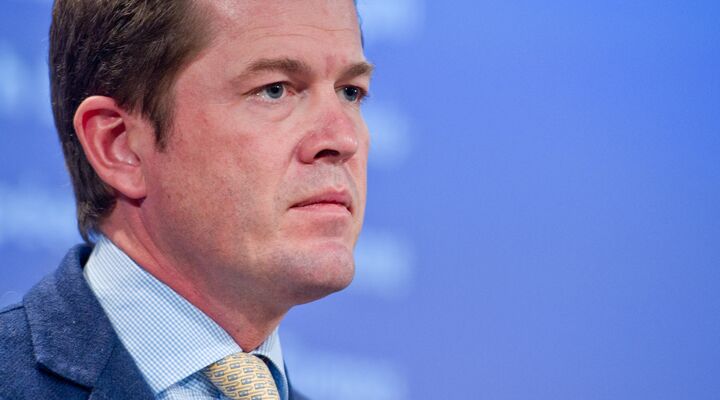
Guttenberg Challenges Berlin on Iran, Israel
Our readers are familiar with the respect we hold for Baron Karl-Theodor zu Guttenberg as one of the most impressive of political voices hailing from Germany.
Since the success of the liberal putsch to oust him from German politics, Guttenberg has become an increasingly sought-after speaker on the U.S. circuit, where he holds forth on his specialty, foreign policy.
For the past two years, Guttenberg has been generally content with his dual roles as “eminent statesman” retained by the Washington-based think tank, the Center for Strategic and International Studies, and as an adviser to Nellie Kroes, European commissioner for digital agenda.
However, this week Guttenberg stepped out of that comfort zone to go public in tandem with Ulf Gartzke, head of the Washington office of the csu-associated Hanns Seidel Foundation, in directing very specific foreign-policy advice to Germany’s Chancellor Angela Merkel.
The issue that both chose to publicize in the Wall Street Journal was that of the need for Germany to support Israel in its resistance to Iranian aggression.
Three aspects of this story give serious credence to the prospect that a return to politics in the near future by Guttenberg could be on the cards.
First, Guttenberg chose to write in association with a member of his former political party, the Christian Social Union (csu), the party leader of which, Horst Seehoffer, had already felt him out a year ago and who promised him party support should he ever wish to return to the bull pit of German politics. This would seem to infer that his old party endorses the foreign-policy advice given via the pair’s Wall Street Journal article.
Second, Guttenberg chose one of the highest-profile issues on the foreign-policy agenda today—the effort to contain Iranian aggression, especially against Israel—as the subject of his first major foreign-policy statement since leaving political office. That this formed a strong criticism of Chancellor Merkel’s current meek stance on the issue demonstrates a fundamental criticism of her Middle East foreign policy. It virtually forces further debate in Berlin on the subject only six months from the German federal elections, placing Guttenberg in the spotlight on that debate.
And that is the third significant aspect to Guttenberg’s publicly directed advice to Chancellor Merkel: the timing! The baron from Bavaria would have been very conscious of the fact that his publicly delivered foreign-policy criticisms of, and advice to, Angela Merkel assures him already of a voice in the pre-election debates in perhaps the election’s most important political issue next to the euro crisis—German foreign policy. This at a time when many nations are starting to either fear or become politically geared against German intentions.
Guttenberg has proven that he does not need to be active on the political scene within Germany to have an international voice in its affairs. He is simply stepping into the gap in this debate. As he states in the Journal article, “[A]t the moment, there isn’t even a closed-door discussion taking place about the potential options and responses.”
Of note is the degree of specificity that Guttenberg and his fellow writer give to their advice to Merkel. Spiegel noted they have “given the federal government concrete advice: Top priority must be for Germany to offer the Israelis ‘civil and military assistance’ after an Israeli air raid on Iran. Germany should support the allies ‘to defend’ themselves against possible counterattacks. In their comments, the two Germans propose to deploy more Bundeswehr vessels in the Middle Eastern region, or to offer Israel missiles of the Patriot air defense system” (April 3; translation ours).
As the months race away toward polling day following what may become one of the most crucial electoral campaigns in German postwar history, Guttenberg and his csu cohort warn Germany, “The stakes are high. Germany cannot afford to be on the wrong side of history.”
